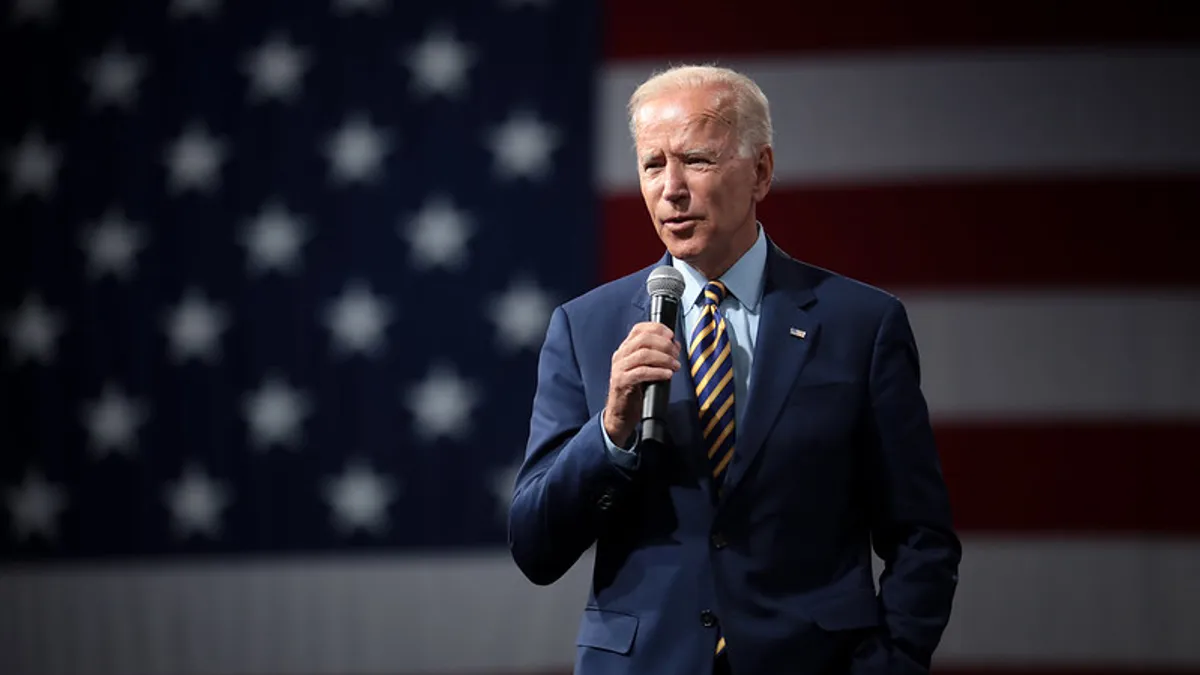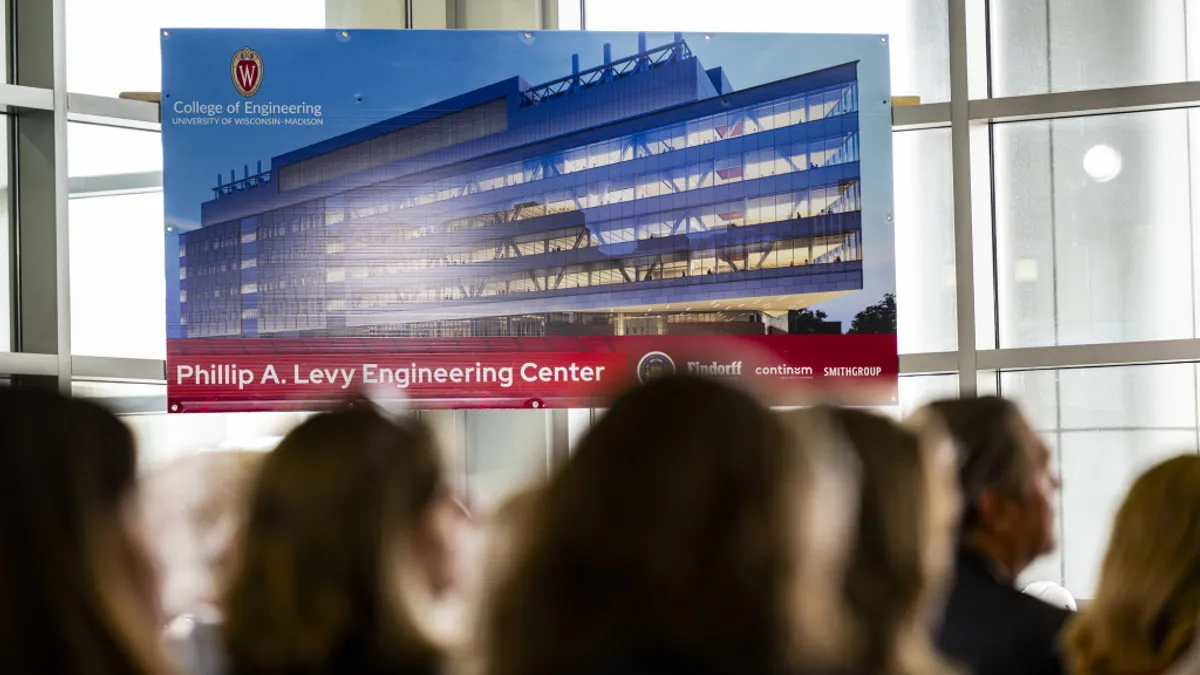After a contentious election week that includes the potential for continued lawsuit and recounts, major news outlets have declared that former Vice President Joe Biden will be the next president of the United States.
Looking forward to Inauguration Day and beyond, what does that mean for the U.S. construction industry?
In terms of infrastructure spending, contractors can look to what Biden outlined during his campaign. The presumptive president-elect said his administration will invest $2 trillion into the economy, creating millions of jobs in infrastructure, housing, building construction and other projects.
"He's looking for a multitrillion-dollar infrastructure bill that includes a broad definition of infrastructure, whether it's surface transportation, aviation, waterfront, Army Corps, civil works, flood control mitigation projects, clean drinking water, renewable energy projects, K-12 public school construction or broadband," said Jimmy Christianson, vice president of government relations at the Associated General Contractors of America. "There's a lot in there."
Another clue as to what the Biden administration could include can also likely be found in recent infrastructure proposals from Democrats, which currently enjoy a House majority. In July, the House passed the $1.5 trillion Moving Forward Act, which includes billions for highways, bridges, schools and energy projects.
One thing that certainly won't be included under Biden's watch is continued funding for Trump's border wall, which could leave the contractors currently working on it in a lurch if the funding plug is pulled. This summer, Biden said that his administration would not build “another foot of wall” along the U.S.-Mexico border if he was elected.
'The Biden challenge'
Observers also point out that while contractors would certainly benefit from that infusion of funding for civil projects, they would be held to account for what it's spent on and how they operate their own businesses. For instance, Biden has made a carbon tax and buying American part of his campaign platform and would likely emphasize inclusion programs for minorities.
"The Biden challenge for us is that you're going to get more money, but then you're going to have to measure your greenhouse gas emissions," said Jay Hansen, executive vice president for advocacy at the National Asphalt Pavement Association, whose members include road builders. "Everyone will be challenged to buy American in terms of material. Disadvantage Business Enterprise [DBE] project labor agreements and those kind of programs will get tougher."
From that perspective, Christianson said that while any funding would be good, Biden won't be writing a blank check for contractors.
"The possibility of a large infusion of capital in the coming months would be welcomed," said Christianson. "But again, the strings that are attached to that capital are going to be our biggest concerns.”
Unions, immigration on the table
One of the biggest issues to watch for contractors will be Biden's stated intention to "strengthen worker organizing, collective bargaining and unions."
The Democrats’ ability to move forward with pro-union legislation like the PRO (Protect the Right to Organize) Act will depend on whether the Senate retains its Republican majority. Senate Republicans thus far have failed to advance that legislation since the House passed it early this year.
Mike Bellaman, president and CEO of the Associated Builders and Contractors, argues that the PRO Act could potentially take away workers' choice to join a union or not.
"The first thing it does, which I don't think many people really understand, is it overrides 27 states that have been through a democratic process to decide that they want to be a right to work state," Bellaman said, referring to states that have banned compulsory union membership for workers. In those states, workers can still choose to join a union, but can't be forced to.
"It does a significant amount to the process of employee choice to determine do they want to work in an organized environment or not, or a non-union, non-organized environment."
On the other hand, a Biden administration would likely make it easier for workers who aren't U.S. citizens to be legally employed in the United States, which should help construction's perennial labor shortage.
"There are over 100,000 workers in the construction industry that are either in the DACA [Deferred Action for Childhood Arrivals] or TPS [Temporary Protected Status] program," Christianson said. "Under President Trump, we would expect for those programs to be dismantled. Under President Biden, that wouldn't be the case, and those programs would probably be enacted into statute or some sort of immigration package."
While construction and infrastructure aren't typically why people turn out at the polls, the results will impact contractors.
“The election is consequential," Hansen said. "With Biden, you might get a better, bigger program. But you know, who gets to spend the money and what the money can be spent on is really important.”





















